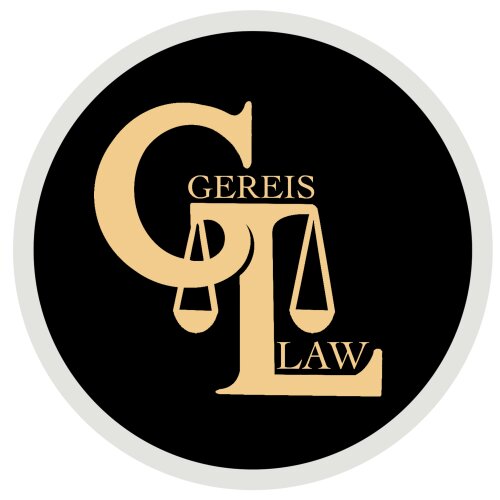Best ADR Mediation & Arbitration Lawyers in Vermont
Share your needs with us, get contacted by law firms.
Free. Takes 2 min.
Or refine your search by selecting a city:
List of the best lawyers in Vermont, United States
About ADR Mediation & Arbitration Law in Vermont, United States
Alternative Dispute Resolution (ADR), which includes both mediation and arbitration, is an important part of Vermont’s legal system. Instead of resolving disputes through traditional court litigation, ADR offers structured, out-of-court processes that can help parties come to an agreement more quickly, affordably, and with greater privacy. In Vermont, ADR is widely used in civil, family, employment, commercial, and community disputes. These methods can be initiated voluntarily by the parties or ordered by a court. Both mediation and arbitration are recognized and supported by Vermont law as effective tools that help reduce the burden on courts and promote amicable settlements.
Why You May Need a Lawyer
Getting legal advice is often helpful when you are participating in mediation or arbitration in Vermont. Common situations where people seek legal help include:
- Understanding your legal rights and obligations before or during an ADR process
- Determining whether mediation or arbitration is appropriate for your situation
- Drafting or reviewing mediation or arbitration agreements
- Preparing evidence or arguments for an ADR session
- Representing you at mediation or arbitration sessions, especially if the dispute involves complex or high-stakes issues
- Ensuring any settlement or award is properly documented and enforceable
- Challenging or enforcing arbitration awards in court, if necessary
- Navigating disputes involving significant financial, property, business interests, or family matters
- Dealing with cross-border or out-of-state elements in your dispute
- Understanding procedural rules specific to Vermont’s courts and ADR processes
Local Laws Overview
Vermont law supports ADR through statutes, court rules, and a network of qualified professionals. Some of the key aspects include:
- Vermont Rules for Alternative Dispute Resolution: The Vermont Supreme Court has adopted rules for ADR processes, including civil mediation and arbitration. Courts may refer cases to mediation before trial, especially in family and civil cases.
- Confidentiality: Vermont laws generally ensure that what is discussed in mediation remains confidential, barring agreement by the parties or exceptional circumstances (such as threats of harm).
- Voluntary and Mandatory ADR: Several Vermont courts can require parties to attempt mediation before proceeding to hearings or trial, though parties can also participate voluntarily.
- Qualified Mediators and Arbitrators: Vermont has standards for mediator and arbitrator qualifications, and many court-connected mediators are court-approved.
- Enforcement of Agreements: Settlements reached through mediation can often be converted into binding court orders. Arbitration awards may be confirmed, vacated, or modified by Vermont courts under specific procedures.
- Legal Framework: Vermont recognizes the Uniform Arbitration Act, which governs many aspects of arbitration agreements and awards.
Frequently Asked Questions
What is the difference between mediation and arbitration?
Mediation involves a neutral third party who helps the disputing parties negotiate a settlement, but does not make binding decisions. Arbitration involves a neutral third party who hears both sides and makes a binding decision, similar to a judge.
Is participation in ADR required by Vermont courts?
Participation in ADR can be either voluntary or mandatory. Many Vermont courts strongly encourage or require ADR, especially mediation, before proceeding to trial in family and civil cases.
Are ADR agreements enforceable in Vermont?
Yes, agreements reached in mediation can be included in a court judgment or order. Arbitration awards are typically enforceable under Vermont law unless successfully challenged.
Do I need a lawyer to participate in mediation or arbitration?
While you are not required to have a lawyer, legal advice can help you understand your rights and interests, especially in complex disputes or when the stakes are high.
How do I find a qualified mediator or arbitrator in Vermont?
You can seek referrals from your local court, state and professional mediator lists, or through organizations like the Vermont Bar Association.
Is ADR confidential in Vermont?
Yes, Vermont law generally protects the confidentiality of communications made during mediation. There are some exceptions, particularly for threats of harm or agreements otherwise authorized by the parties.
How much does ADR cost compared to litigation?
ADR is generally less expensive and faster than going to court, but costs can vary depending on the mediator’s or arbitrator’s rates and the complexity of the dispute.
What kinds of disputes are suitable for ADR in Vermont?
A wide range of disputes can be resolved through ADR, including family, employment, contract, business, landlord-tenant, personal injury, and neighborhood disputes.
Can I appeal the outcome of arbitration?
Arbitration awards are typically binding and not subject to appeal, except on narrow grounds such as fraud, bias, or significant procedural errors.
What happens if one party refuses to participate in ADR?
If ADR is court-ordered, refusal can lead to legal consequences, such as sanctions or negative outcomes in your case. If it is voluntary, proceedings will not move forward unless both parties agree.
Additional Resources
If you need more information or assistance regarding ADR, mediation, and arbitration in Vermont, consider contacting these resources:
- Vermont Judiciary - Office of Mediation Programs
- Vermont Bar Association - Dispute Resolution Section
- Vermont Legal Aid
- The American Arbitration Association (regional office serving Vermont)
- Local county court clerk’s office for court-connected mediation programs
- The Vermont Family Mediation Association
Next Steps
If you believe you need legal assistance with an ADR, mediation, or arbitration matter in Vermont, start by gathering all relevant documents and information about your dispute. Contact a Vermont attorney with experience in ADR for an initial consultation. You can also reach out to your local court for information on available programs or ask the Vermont Bar Association for a referral to a qualified mediator or arbitrator. Remember to check whether your dispute is subject to any court rules requiring early mediation. Acting early and seeking professional guidance can help you resolve your legal issues efficiently and with greater confidence.
Lawzana helps you find the best lawyers and law firms in Vermont through a curated and pre-screened list of qualified legal professionals. Our platform offers rankings and detailed profiles of attorneys and law firms, allowing you to compare based on practice areas, including ADR Mediation & Arbitration , experience, and client feedback.
Each profile includes a description of the firm's areas of practice, client reviews, team members and partners, year of establishment, spoken languages, office locations, contact information, social media presence, and any published articles or resources. Most firms on our platform speak English and are experienced in both local and international legal matters.
Get a quote from top-rated law firms in Vermont, United States — quickly, securely, and without unnecessary hassle.
Disclaimer:
The information provided on this page is for general informational purposes only and does not constitute legal advice. While we strive to ensure the accuracy and relevance of the content, legal information may change over time, and interpretations of the law can vary. You should always consult with a qualified legal professional for advice specific to your situation.
We disclaim all liability for actions taken or not taken based on the content of this page. If you believe any information is incorrect or outdated, please contact us, and we will review and update it where appropriate.
Browse adr mediation & arbitration law firms by city in Vermont
Refine your search by selecting a city.














